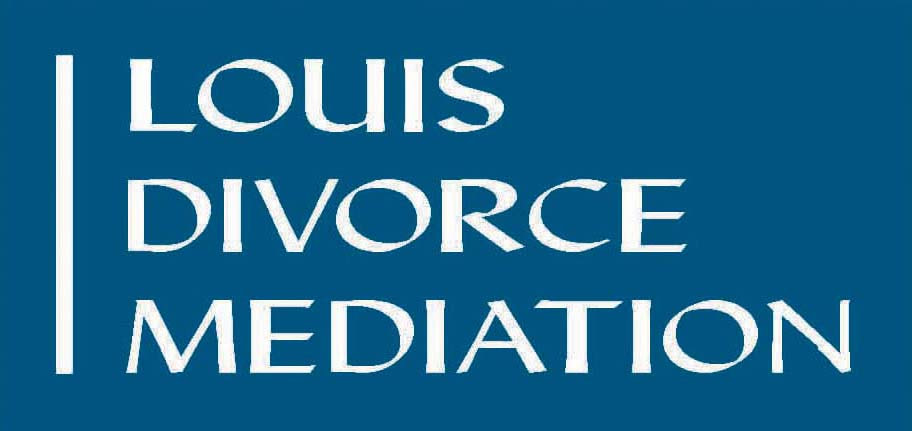Louis Divorce Mediation ~ Online and In-Person Mediation in Chicago
|
When I was growing up in the 60s and 70s (yes, I am a “boomer”), journalism was seen by most as a profession with integrity. Unfortunately, not everyone feels that way anymore. But you can count me as one who still appreciates journalism that is based on diligent research and facts that uncover the truth.
For clients in my divorce mediation practice, our work together to craft a plan for the future has a lot in common with good journalism—in a word, my goal is to be thorough. For clients in my divorce mediation practice, our work together to craft a plan for the future has a lot in common with good journalism—in a word, my goal is to be thorough. Just like a news reporter, the elements that describe “thorough” are simply inquiries that cover all the bases:
In making your plan, it’s important to be clear about who will be responsible for carrying out a specific task. Without designating the responsible party, we miss out on accountability. Without accountability, cracks can form in any plan. As you are thinking about what will be done, the details matter a great deal. The more specific you are, the less chance there will be for a misunderstanding down the line. When future disputes do occur, you are forced to revisit a difficult time of your life—and no one desires this. Considering when something will happen is essential to making sure that expectations are met. I encourage you as my clients to set timeframes and deadlines, partly to avoid unnecessary pressure amidst an already stressful time, but even more to prevent either of you from feeling that the other is stalling or won’t live up to a commitment. Where things will happen is particularly relevant in parenting discussions. Often this relates to how children will transition from one parent’s care to the other’s. Finally, the why of any plan may not always make it into words, but a reason is there. I find clients may need to go through a process of self-examination to be at rest with a particular decision being made. Namely, “Will this address what I need to happen,” “Will this achieve something that I care deeply about,” or “Will this help both of us move forward?” As your mediator, I am committed to the same standards as a good journalist—to report on what you’ve agreed to with integrity and accuracy.
0 Comments
As a solo practitioner, I carry my business cell phone with me, whether I’m in the office, at home, doing errands or living my life.
When the phone rings, I answer if I can. I’m somewhat surprised when the person at the other end expresses some amazement that a human answered. I guess we’ve come to expect that communication by voicemail, email and text messaging is the norm. My disposition runs counter to that understanding. As a mediator, I’m contacted by people who are facing challenging circumstances who deserve my attention—even if it’s only to say that I’ll call them back when I have more time if I’m otherwise busy. Of course, I don’t always answer, and you may get my voicemail. However, I can assure you that, whether it’s a voice message, email or text message, a quick response will follow, even just to acknowledge you. I believe that responsiveness is a simple act of respect. It validates you as being important to me, because what you are calling me about is usually very important. I believe that responsiveness is a simple act of respect. It validates you as being important to me, because what you are calling me about is usually very important. The sooner you have a chance to share with me your needs and concerns, the sooner you will feel heard. Just as I put a priority on being responsive as a crucial element in crafting a strong professional relationship with a current or future client, you can do the same in your relationship with your spouse and co-parent. Communication at the end of a marriage can often be tense, and there is a tendency to avoid contact. Nevertheless, your ability to provide a timely response to a question or request is truly a visible sign of respect. In most cases, your future communication will revolve around your children, and you each deserve to be heard by the other, regardless of whether you agree. Think of it as a contribution to maintaining a civil relationship. The beneficiaries may very well be your own children. Imagine going to a restaurant and looking over the menu. Just as you are thinking of placing your order, the server says, “The chef will decide what you will be having for your meal.” For most of us, this would not be acceptable; and yet, this is what can happen if you litigate your divorce and leave it to a judge to decide your future.
Let’s go back into the same restaurant, where the menu choices don’t fit your dietary restrictions or preferences. You know that the kitchen has the ingredients to make a dish for you that is not on the menu. You think, if they can make this for you, it would be a wonderful meal. This has happened to me more than a few times, and quite often, the chef is happy to accommodate a special request. These are the restaurants where I’m likely to return. Why? Because I appreciate their willingness to work with me in being creative to prepare the meal that will be most satisfying. Unlike the traditional litigation process, divorce mediation offers the same opportunity for creativity. Like a restaurant server, I work with clients who want to explore the options that others have chosen in other cases. Sometimes you will determine that one of those choices will work best for you. However, when you and your spouse are exploring a different way to decide a particular issue through the mediation process, I support your desire for creativity. After all, this is about what will work best for your future, and I believe that you deserve to control that outcome on your own terms. As you approach a difficult decision involving the end of your marriage, give yourself (and your soon to be ex) the freedom to brainstorm any and all possibilities. As you approach a difficult decision involving the end of your marriage, give yourself (and your soon-to-be ex) the freedom to brainstorm any and all possibilities. Then we can evaluate objectively the advantages and disadvantages of each option and ask as many questions as needed to fully understand what each would entail—whether in relation to parenting, finances or logistics. Using mediation to foster creativity is how you can improve the chances of getting the result that will work best for both of you and your futures. Bon appetit! |
Categories |
David Louis, MPA, CDFA® • Louis Mediation Services - Chicago
|
Chicago Office: 1700 W Irving Park Rd., Suite 105, Chicago, IL 60613
Northbrook Office: 555 Skokie Blvd., Suite 500, Northbrook, IL 60062 |
Copyright © 2024




 RSS Feed
RSS Feed